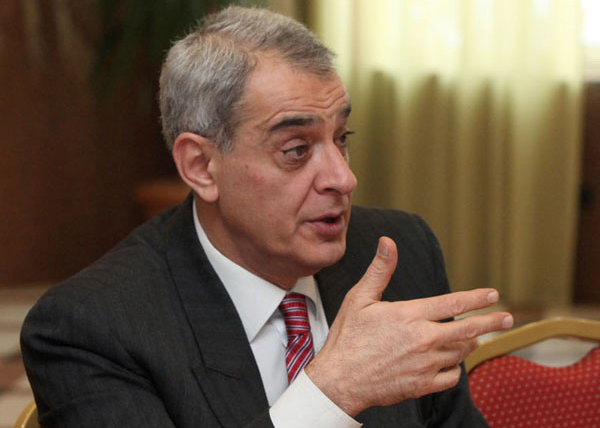
In a follow-up to earlier RSC staff comments on the current status of the Nagorno Karabakh peace process, RSC Senior Analyst David Shahnazaryan added his assessment, focusing on how Azerbaijani attacks on the mediators themselves has triggered a serious shift in diplomacy.
.The assessment, in an interview with the Lragir electronic news agency on January 28, included his analysis of the OSCE Minsk Group co-chairs’ recent announcement that condemned the surge in ceasefire violations and that signified a shift from an earlier “more balanced” approach. Shahnazaryan noted that the statement “clearly accused Azerbaijan of violating the ceasefire” and reminded Azerbaijan of its “responsibility to refrain from tension and attacks.”
He further stressed that the statement was important in terms of Karabakh as a direct party to the conflict, as the statement called on “all parties” to comply with the requirements of the ceasefire agreement, which he viewed as “a clear reference to the ceasefire agreement signed by Nagorno Karabakh, and in which Karabakh has acted as a party.”
Shahnazaryan also said that “it is not just a statement, but it is a very obvious hint that the OSCE Minsk Group treats all parties to the conflict, not only Armenia and Azerbaijan fairly,” which he defined as “not only a positive, but a realistic trend.”
And it was further “noteworthy that this statement was made in the presence of Azerbaijani Foreign Minister Elmar Mammadyarov,” he said, adding that “I think He returned to Baku with a very serious problem in his leadership.” Such a view was confirmed by the fact that “it was no accident that official Azerbaijani websites until now are silent about this announcement,” he stated.
For Shahnazaryan, the current situation offers “Armenian Foreign Minister Edward Nalbandian significant opportunities to develop these positive trends, especially in light of his upcoming meeting the OSCE Minsk Group co-chairs.”
Referring to the Armenian Defense Minister’s statement that the OSCE Minsk group should establish mechanisms for investigating incidents, Shahnazaryan welcomed it as “a sound initiative,” while recalling that such a mechanism was established by Armenia, Azerbaijan and Nagorno Karabakh long ago, and was created in an agreement that was signed in February 1995 as part of the consolidation of the tripartite ceasefire agreement.” Therefore, he added, “I suggest that official Yerevan and Stepanakert unilaterally, without delay, begin to apply it, and in that way, in cases of ceasefire violations, regardless of the official response, the co-chairs of the OSCE will have to refer to it.”

